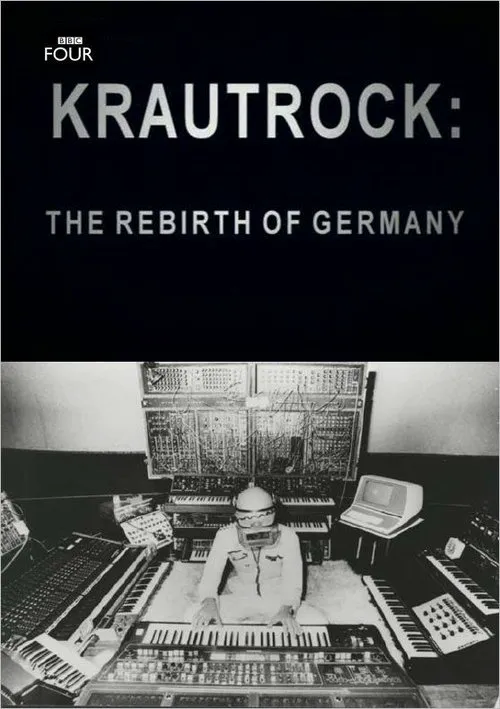Krautrock: The Rebirth of Germany

Plot
In the aftermath of World War II, Germany lay in ruins, both physically and culturally. The nation was left to pick up the pieces and rebuild, but amidst the devastation, a new spirit of creativity began to emerge. Krautrock, a radical and experimental music movement, would be born from the ashes of war-torn Germany, and its impact would be felt far beyond the country's borders. Krautrock, a portmanteau of the German word "Kraut" meaning "herb" and the English suffix "rock," was more than just a musical genre; it was a way of life. Characterized by its experimental, psychedelic, and avant-garde sound, Krautrock was a rejection of the traditional values and conformity of post-war Germany. It was a reaction against the militaristic and nationalist ideologies that had led to the devastation of the war, and a search for a new, free-spirited identity. The documentary "Krautrock: The Rebirth of Germany" explores the story of this revolutionary music movement, and the musicians who dared to challenge the norms and create a new German musical identity. We see a cast of characters, each with their own unique vision and personality, but all united in their quest to create something new and innovative. One of the key figures in the Krautrock movement was Can, an influential band from Cologne who are often credited with starting the movement. Led by the innovative and charismatic bassist Holger Czukay, Can was a band that defied categorization, blending elements of rock, psychedelic music, and electronic experimentation to create a truly revolutionary sound. Their music was characterized by its hypnotic and repetitive rhythms, inspired by the psychedelic sounds of the 1960s and the experimental electronica of Karlheinz Stockhausen, an influential composer and music theorist who is often seen as the bridge between classical music and the emerging new avant-garde sounds. Can's music was an invitation to transcend the rational and enter the mystical and the unknown, and their influence can be seen in many later bands, from Brian Eno to Tangerine Dream. But Krautrock was not just about Can and a few other influential bands; it was a cultural movement that involved a whole generation of young musicians and artists who sought to break free from the constraints of traditional music and create something new and exciting. The movement drew inspiration from a wide range of sources, including psychedelia, electronic music, and avant-garde art, and it spawned a whole new wave of creative expression that would go on to influence music, visual art, and fashion for decades to come. The documentary takes us on a journey into the heart of the Krautrock movement, with behind-the-scenes footage and interviews with the key players and witnesses of this pivotal moment in German history. We see the musicians rehearsing in cramped, dingy studios, experimenting with unusual instruments and techniques, and pushing the boundaries of what was possible in music. Through their music, Krautrock artists challenged the established norms of German culture and society, and they created a new kind of German identity that was free-spirited, experimental, and open to the world. They showed that, despite the trauma and devastation of war, Germany was not just a nation of militaristic bureaucrats and conformist intellectuals, but a land of creative rebels and free spirits who sought to make their mark on the world. The documentary also sheds light on the cultural and historical context of the Krautrock movement, and how it emerged as a response to the trauma and disruption of war. We see footage of post-war Germany, a society in transition and in crisis, and how the music reflected the hopes, fears, and anxieties of the time. Through the stories and music of the Krautrock artists, we get a glimpse of the vibrant, thriving cultural scene that emerged in post-war Germany, a scene that was characterized by experimentation, innovation, and a sense of possibility. This was a time when anything was possible, and the creative energy was palpable. But Krautrock was more than just a musical movement; it was also a way of life that rejected the conformity and nationalism of post-war Germany. The documentary shows how the musicians lived and breathed a new kind of freedom, one that was inspired by the hippie counterculture of the 1960s and the anti-establishment ethos of the punk movement. The documentary also highlights the influence of Krautrock on the wider world of music, and how it prefigured the electronic and ambient sounds of the 1980s and 1990s. We see how the movement's experimental and avant-garde spirit has inspired generations of musicians, from Brian Eno to Aphex Twin, and how its influence can be heard in a wide range of music, from electronic dance music to ambient soundscapes. In conclusion, "Krautrock: The Rebirth of Germany" is a fascinating documentary that captures the essence of a pivotal moment in music history and explores the cultural and historical context of the Krautrock movement. It is a testament to the power of creative expression and the human spirit, and it reminds us that, even in the darkest of times, there is always hope and the possibility of rebirth.
Reviews
Recommendations


